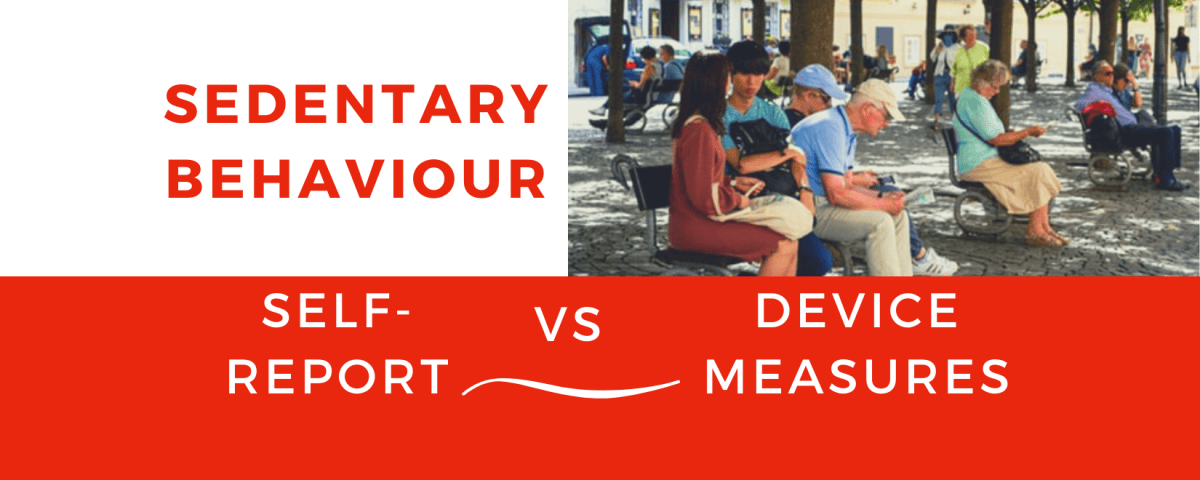Possible benefits of replacing time spent in sedentary behaviour with moderate-to-vigorous physical activity for breast cancer survivors
February 26, 2020
Too much screen time for toddlers may lead to unhealthy behaviours in later childhood
March 12, 2020A paper titled “A comparison of self-reported and device measured sedentary behaviour in adults: a systematic review and meta-analysis” was published in the International Journal of Behavioral Nutrition and Physical Activity on March 04, 2020. The full-text version of the article is available here (open access).
Study Summary
Background: Sedentary behaviour (SB) is a risk factor for chronic disease and premature mortality. While many individual studies have examined the reliability and validity of various self-report measures for assessing SB, it is not clear, in general, how self-reported SB (e.g., questionnaires, logs, ecological momentary assessments (EMAs)) compares to device measures (e.g., accelerometers, inclinometers).
Objective: The primary objective of this systematic review was to compare self-report versus device measures of SB in adults.
Methods: Six bibliographic databases were searched to identify all studies which included a comparable self-report and device measure of SB in adults. Risk of bias within and across studies was assessed. Results were synthesized using meta-analyses.
Results: The review included 185 unique studies. A total of 123 studies comprising 173 comparisons and data from 55,199 participants were used to examine general criterion validity. The average mean difference was -105.19 minutes/day (95% CI: -127.21, -83.17); self-report underestimated sedentary time by ~1.74 hours/day compared to device measures. Self-reported time spent sedentary at work was ~40 minutes higher than when assessed by devices. Single item measures performed more poorly than multi-item questionnaires, EMAs and logs/diaries. On average, when compared to inclinometers, multi-item questionnaires, EMAs and logs/diaries were not significantly different, but had substantial amount of variability (up to 6 hours/day within individual studies) with approximately half over-reporting and half under-reporting. A total of 54 studies provided an assessment of reliability of a self-report measure, on average the reliability was good (ICC = 0.66).
Conclusions: Evidence from this review suggests that single-item self-report measures generally underestimate sedentary time when compared to device measures. For accuracy, multi-item questionnaires, EMAs and logs/diaries with a shorter recall period should be encouraged above single item questions and longer recall periods if sedentary time is a primary outcome of study. Users should also be aware of the high degree of variability between and within tools. Studies should exert caution when comparing associations between different self-report and device measures with health outcomes.
Authors and Affiliations
Stephanie A. Prince1,2, Luca Cardilli3,4, Jennifer L. Reed1,5,6, Travis J. Saunders7, Chris Kite4,8, Kevin Douillette7, Karine Fournier9 & John P. Buckley4
- Division of Cardiac Prevention and Rehabilitation, University of Ottawa Heart Institute, Ottawa, Canada
- Centre for Surveillance and Applied Research, Public Health Agency of Canada, 785 Carling Avenue, Ottawa, K1A 0K9, Canada
- Birmingham Community Healthcare NHS Foundation Trust, Community Cardiac Services, Birmingham, United Kingdom
- Centre for Active Living, University Centre Shrewsbury, University of Chester, Guildhall, Frankwell Quay, Shrewsbury, United Kingdom
- School of Human Kinetics, Faculty of Health Sciences, University of Ottawa, Ottawa, Canada
- School of Epidemiology and Public Health, Faculty of Medicine, University of Ottawa, Ottawa, Canada
- Department of Applied Human Sciences, University of Prince Edward Island, Charlottetown, Canada
- School of Life and Health Sciences, Aston University, Birmingham, United Kingdom
- Health Sciences Library, University of Ottawa, Ottawa, Canada
Citation:
Prince, S.A., Cardilli, L., Reed, J.L. et al. A comparison of self-reported and device measured sedentary behaviour in adults: a systematic review and meta-analysis. Int J Behav Nutr Phys Act 17, 31 (2020). https://doi.org/10.1186/s12966-020-00938-3




